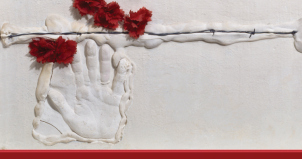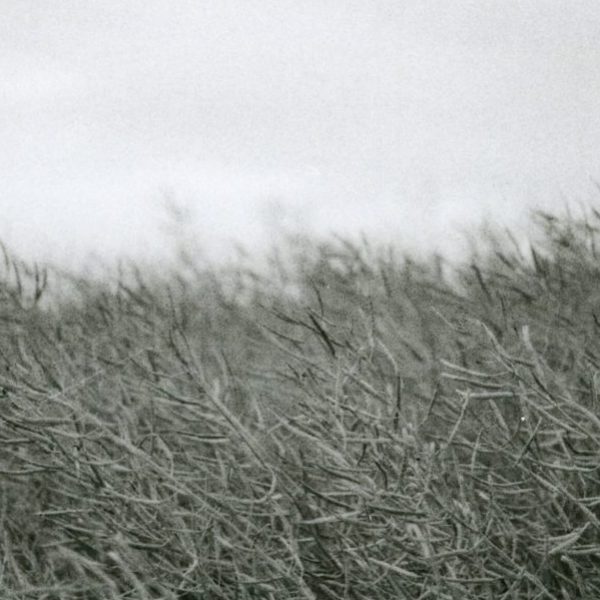An Interview with Poet Kiki Dimoula by Cecile Inglessis Margellos

Kiki Dimoula, credit Michalis Anastasiou
Following last weekend’s profile in the New York Times, we are pleased to release a special intimate conversation between Greek poet Kiki Dimoula and Cecile Inglessis Margellos, one of the translators of Dimoula’s new volume of poetry, The Brazen Plagiarist, now available to the English-speaking world through Yale University Press’s Margellos World Republic of Letters series. In the interview, which took place last October, Dimoula and her translator discuss poetic influences and expressions, the exercise of writing, and an in-depth consideration of what poetry is and what it does.
Cecile Inglessis Margellos: It is unanimously acknowledged that among contemporary Greek poets you are the greatest, the most read, and the most loved. Authoritative critics proclaim you the new Sappho. Is that a source of joy or of anxiety?
Kiki Dimoula: I do not share this assessment. But my compensation comes from the priceless esteem of a few remarkable people and the equally remarkable affection of my readers. That payment is a source of true joy, but also constant anxiety, for I keep worrying about whether I will continue to receive it.
CIM: In 2002, you were the third woman to be made a full member of the Academy of Athens since its creation in 1929, thus becoming “immortal.” What did this honor give you and what did it deprive you of?
KD: I gained a place as a dumbfounded, daunted, and dim star in the Academy’s bright firmament, but I lost my natural place, the one that frugality assigned to me in both my inner and my outer world.
CIM: As an employee of the Bank of Greece, you contributed to the Bank’s literary magazine (1959–1967), for which you wrote exclusively short stories, while at the same time publishing only poetry. Did this somewhat enforced concentration on prose play a role in your self-definition as a poet?
KD: Yes, it acted as a scarecrow, frightening me away from a foreign field that, except for high school essays, I had never dared enter. How could I plow it? On the other hand, where was the plow when I broke into the equally foreign field of poetry, cutting through the sharp barbed wire that surrounded it? Yet that field was where I took root and grew.
CIM: You have often stressed that your husband, the poet Athos Dimoulas, had a decisive influence on your becoming a poet. Would you still say that?
KD: I might start by reminding people that Athos was first and foremost a great poet, but doing so would mean participating in his establishment as nonexistent; so I’ll leave this dreary responsibility to untalented oblivion. I will simply reiterate his rare quality of not being competitive; on the contrary, though a poet himself, he often publicly declared that I had capabilities he did not possess. But had he not persistently fueled my small, weak flame, I might have been extinguished.
It is not his support I so bitterly miss, however, or the many and irreplaceable things he gave me, but rather the things he kept for himself. For love, as we know, grows by not giving to us. And if our passion for poetry lives on and persists, it is because poetry offers us only its bits of lint.

CIM: Is that why you chose poetry?
KD: Did I choose to breathe? Was it my choice to breathe, as poetry does, through melancholy’s stuffed nostril? Life’s essential length is only a few pages long, as succinct as a line of verse and as brief as the title of a poem.
CIM: When did you first consider yourself purely a poet?
KD: Never. Unless I unknowingly elevate myself when I take half a sleeping pill at night and sink deep into a dream. No manifestation of ours is pure, unalloyed—not even our death, for it is adulterated by our belief in the other, next life.
CIM: What is poetry?
KD: Many things. A second life of the living and the dead; the Quixotism of the unquenchable; a mirage of people in the desert; crowds flocking to hear the future’s lecture on death; the return of the prodigal uncertainty; and countless other lost sheep.
CIM: Is it a godsent inspiration or the arduous mastering of an art?
KD: It is inspiration, which is sent by god but also by our toilsome perseverance, and strangely enough it is sometimes brought on by our disheartened renunciation of all expectation.
CIM: Do you read poetry? Do you acknowledge debts to other poets?
KD: I’m indebted to all of them, even to those I haven’t read, those unknown to me. This unknown is my main influence, since that’s where I too came from.
CIM: Do their many illustrious predecessors–Homer, Sappho, Sophocles, Solomos, Cavafy, Seferis, Elytis, to name but a few–cast a heavy shadow on modern-day Greek poets?
KD: I avoid too much contact with such magnitudes; I strive to forget about them so as to not to be crushed by an unfavorable comparison.
CIM: In Greek, the words for “poetry” and “writing” are both feminine, and you are a female poet. Is there such a thing as a female poetry?
KD: There is insofar as it is written by women. But making it a separate category demonstrates how difficult it is to achieve equality between the sexes. What’s most exasperating, and extremely anti-poetic, is that the term “female poetry” implies a “genetic” inferiority. Why do we never speak of male poetry?
CIM: Do you remember your very first poem?
KD: I don’t even remember my last one.
CIM: This volume’s title is borrowed from one of your most recent poems, “The Brazen Plagiarist,” which accuses writing of being a plagiarist. Is it?
KD: Yes, after a thorough investigation I definitely consider writing a plagiarist. I have caught it sneaking in, searching and finding out all the innermost notes kept by our being. Notes about all that has remained unspoken, all that wants to but is afraid to be spoken, all that did not find its way to deliverance, all those bulky things that managed to scrape through imagination’s cracks because they could not bear the idea of never having happened. All that is guilty and has resorted to allusion so as to be saved from its revelation, and all that is dead but thanks to death’s crucial omissions haunts us by drinking its secret’s blood. Writing reads and copies all this in its dark little notepad, giving it a fleeting, unrecognizable shape so that it will not be identified as ours, so that its theft will be mistaken for . . . the authentic creation.

Cecile Inglessis Margellos
CIM: What awakens the desire or the need to write? A feeling, an image, a word?
KD: Something big or something tiny, like the skeleton of a desire whose name and face have withered away; or a shadow perched on the broken branch of your gaze; or a feather floating down from above which with a slow, oscillating intonation delivers the funeral oration of a bird. Or the insolent ease with which the unexpected walks in without knocking and fills a poem condemned to die unwritten with the frantic hope that it will be written after all.
CIM: Does place influence writing? To what extent have your poems been defined by your neighborhood, from which you have never moved, or by Greece, which you have seldom left?
KD: My homeland is more the neighborhood of Kypseli, biographer of almost my entire life, assisted by its co-biographer Pythia Street. I lived there as a child, as a married woman, and as a mother; my present solitary home is just two steps away. That street corroborated all that my inner Pythia prophesized and all that it could not, leaving me thus totally unprepared.
CIM: Do you write every day? Do you follow a strict discipline?
KD: I write very rarely. Only, in fact, when the sheet of paper suffers an existential crisis and threatens, if I don’t surrender to it, to bury me alive under its whiteness.
CIM: Is poetry necessary?
KD: Yes, poetry is necessary. Especially to the “why.”
CIM: And does poetry need love?
KD: If anything needs love it is reality, for it is reality that lacks it the most–I doubt that it was ever loved. Poetry contains love and holds it in high esteem, even though love always humiliates it by using it merely as a soothing after-shave lotion.
CIM: You have been a poet for at least sixty years. Has the passage of time, a deeper–perhaps also heavier–maturity changed your relationship to poetry?
KD: Poetry relishes ripe fruit–but ripe is one thing and overripe quite another. That’s something poetry doesn’t like, so it couldn’t care less if I were to fall overripe to the ground.
CIM: Any advice for younger poets?
KD: I would advise them to not allow emotion to dominate the poem. Looking back over my own youthful efforts, I realize how often emotion monopolized them, leaving the deeper, essential residue lying stagnant.
CIM: Do you avoid emotion then?
KD: How could I avoid it? I carry it inside me. What I try to do is to keep emotion on a tight leash; otherwise, it can never be transubstantiated into poetry. For what poetry prefers, above all, is to think.?
CIM: What is it that you aspire to generate through your poems?
KD: I don’t aspire, but I would be very happy if one of my poems suddenly offered someone a shady rest stop, a breather in our interminable march under the murderous, scorching heat of the superfluous.
CIM: What are your feelings about having been published by the Margellos World Republic of Letters of YUP?
KD: This publication is an indication that the unhoped-for did not remain unconvinced by me. But since I will never let any consolation of happiness obscure my judgment, I must add that, to a great degree, I owe this honorary entrance permit into Yale to the transmutation performed by the translation. It infused formidable energy into my poems, an energy drawn from the incalculable soul-spending of the visionary translators.
Kiki Dimoula is a full member of the Academy of Athens, one of three women ever to be inducted. She has been awarded the Greek National Poetry Prize twice, the Grand National Prize for lifetime achievement, the Ouranis Prize of the Academy of Athens, the Aristeion of Letters of the Academy of Athens in recognition of her complete oeuvre, and the European Prize for Literature. She published her first collection of poetry in 1956 and has since been widely published in Greece and translated into English, French, Danish, German, Italian, Spanish, Swedish, and many other languages.
Cecile Inglessis Margellos is a translator from French, English, and ancient Greek, a scholar, and a literary critic. She has translated into Greek works by Céline, Antoine Berman, Colette, Pierre Drieu La Rochelle, Jean Giraudoux, Raymond Queneau among others, and is preparing an annotated translation of Plato’s Symposium from ancient to modern Greek. She divides her time between Geneva and Athens.





Poetry like architecture, in not a luxury but rather a necessity like walls, ceiling, floor – entablature, frieze, metaphor.